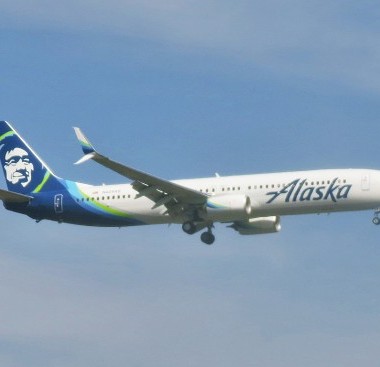Qantas CEO Joyce steps down early after horror final weeks
Alan Joyce is stepping down early as head of Qantas Airways Ltd., an ignominious exit for one of aviation’s highest-profile leaders after claims the airline sold tickets for thousands of flights it had already canceled.
Joyce, who was due to hand over to Chief Financial Officer Vanessa Hudson in November, will leave Sept. 6, Qantas said in a statement Tuesday. She’ll now have the task of repairing the carrier’s tattered reputation with customers as regulators tighten their focus on Qantas’s dominance of Australia’s aviation market.
Hudson’s premature succession shows an airline bowing to public anger over the alleged sale last year of seats on flights that were never going to take off. The scandal, the latest in a series of blows to Qantas’ reputation in recent months, has been amplified by the airline’s record-breaking profits.
“In the last few weeks, the focus on Qantas and events of the past make it clear to me that the company needs to move ahead with its renewal as a priority,” Joyce, 57, said in the statement.
Qantas shares rose as much as 0.5% in early Sydney trading Tuesday.
Joyce’s unexpected departure after 15 years at the helm is an extraordinary concession, just weeks before a planned formal farewell at the airline’s annual general meeting.
The Australian Competition & Consumer Commission on Aug. 31 sued Qantas for allegedly continuing to take money from ticket sales on more than 8,000 cancelled flights between May and July 2022. According to the regulator, Qantas kept selling tickets for an average of more than two weeks, and sometimes longer than a month.
Qantas also allegedly took weeks to tell ticketholders on more than 10,000 flights that their services had been pulled. The watchdog is pursuing a record penalty of more than A$250 million ($162 million) if the case is proven in court.
The allegations that Qantas sold bogus seats to passengers was ultimately too much for the airline to weather without some attempt to limit the damage. Joyce, for years the public face of Qantas, was already under scrutiny for the airline’s levels of reliability and its retention of customers’ Covid flight credits.
Pressure built on Joyce after he was grilled by a parliamentary committee last week over Qantas’s record profits during a cost-of-living crisis.
For almost his entire tenure, Joyce forged a reputation as a ruthless, hard-edged executive who seldom bowed to criticism.
Ever since he grounded Qantas’ entire fleet in 2011 to tackle a labor dispute at home, he has served as a lightning rod for public anger. A series of cost and job cuts made him enemies inside the union movement and his own workforce, though his ability to repeatedly deliver unprecedented earnings and shower shareholders with cash won him the support of investors and the board.
“Joyce’s departure is welcome news for workers,” Transport Workers Union National Secretary Michael Kaine said in a statement. “In fact, it’s the first good decision the Qantas board has made for a very long time. Joyce is slipping into retirement two months early, leaving one of the biggest messes in corporate Australia’s history in his wake.”
Joyce’s decision to finally relent reflects the scale of the challenges now facing Qantas.
“This transition comes at what is obviously a challenging time for Qantas and its people,” Qantas Chairman Richard Goyder said in the statement. “We have an important job to do in restoring the public’s confidence in the kind of company we are.”
For much of 2022, the airlines struggled to cope with a sudden rebound in demand as Covid-19 travel restrictions eased. With the airline short of staff and planes, cancellation rates soared. Passenger rage reached its peak in July last year, when Joyce’s Sydney home was pelted with eggs and toilet paper.
Qantas’s record profit for the year ended June 2023 inevitably drew accusations from union opponents that the airline was overcharging passengers for the benefit of shareholders and top management. Joyce’s enemies were skeptical of his attempt to re-balance the equation with 1 million cut-price fares and a donation of 1 billion loyalty points to frequent flyers.
An Australian government decision to block an application by Qatar Airways to operate more flights into Australia — citing the country’s national interest — was also damaging the Qantas brand. Joyce had argued that giving the extra flights to the Middle Eastern airline would distort the market.
The announcement Tuesday means Rob Marcolina becomes Qantas’ chief financial officer earlier than expected.
Similar Stories

Lufthansa Cargo and Maersk launch cooperation to support decarbonization of airfreight
View ArticlePort Authority of New York and New Jersey airports see spookily spectacular surge in October
Port of New York and New Jersey surpasses 700,000 TEUs for eighth consecutive month
View Article
airBaltic Cargo partners with cargo.one to accelerate and enhance its digital sales
View Article
Chapman Freeborn agrees partnership with Portuguese multimodal logistics specialist
View Article
Cathay is ready for the commissioning of the three-runway system at Hong Kong International Airport
View ArticleUnited Airlines Holdings Inc. upgraded To ‘BB’; outlook stable
• United Airlines Holdings Inc. is on track to generate credit measures in line with our previous upside rating threshold this year, and we expect improvement in 2025. • The…
View ArticleGet the most up-to-date trending news!
SubscribeIndustry updates and weekly newsletter direct to your inbox!





